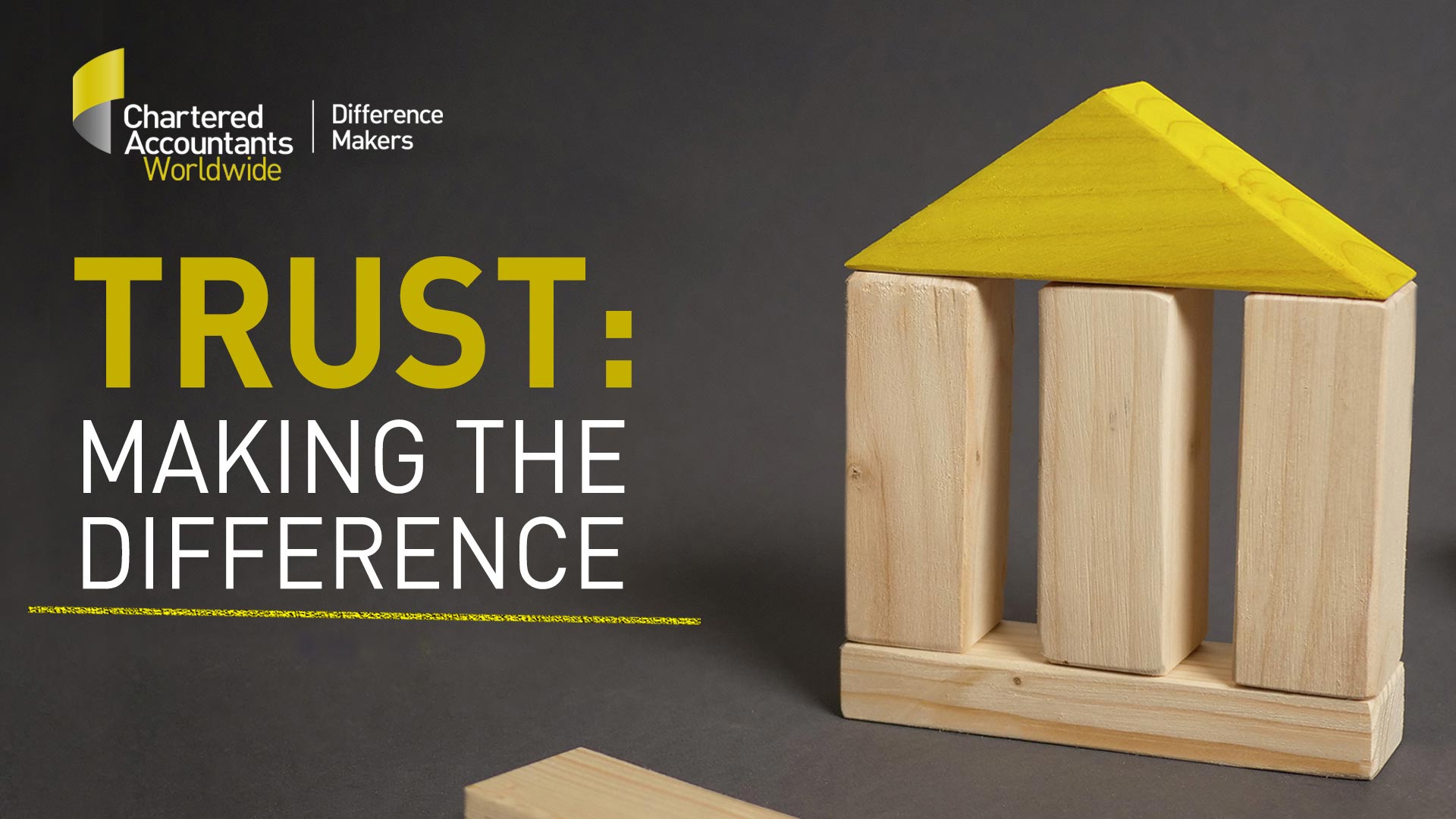Audit has endured a battering of late, but now is the time for us all to work together to rebuild trust in the profession, says ICAS Deputy President Bruce Pritchard CA.
Audit must evolve to remain relevant and trusted

Although my days as an auditor are behind me, I still care deeply about the profession. My views on what needs to change in this area may now come from the perspective of the CEO of a US-listed biotech firm and NED, but auditors need to understand public perceptions about their trade.
There have been no recent high-profile accounting scandals in the US, so currently the reputation of audit there is still pretty high. In the UK, however, it has declined and there are probably two reasons for that. Firstly, an audit is something that nowadays affects far fewer entities with small companies not required to have one. The public focus therefore is very much in relation to large public companies, and also charities above certain thresholds that are required to be audited. So there are far fewer people connected to the process.
The other obvious reason is the number of prominent corporate failures of late. And if the media is asking, “What role did the auditors play in this? Why did they not pick this up?”, that filters through to the public. Of course, a corporate failure may have nothing to do with the audit process. But as soon as a corporation goes bust – and because fewer people are familiar with what an audit is for – then fingers will inevitably be pointed at the auditors and accountants. That comes down to education, but also communication.
So how do we start to improve trust in audit here? The Big Four are dominant, principally because they have pan-sector experience. I’m certainly not against spreading the work among other firms, but those firms would need to have the right sectoral experience for the type of client they’re auditing. What I do strongly support, however, is disaggregating the audit from non-audit advice for public interest entities (PIEs).
State of independence
If a firm is providing all the accountancy advice along with the disclosures for your treatment of a complex transaction, and it is also doing the audit, can you really be certain it is sufficiently independent to verify that the treatment is appropriate? That is why I welcomed the revisions made to the FRC’s Ethical Standard in 2019 that restrict the auditors of PIEs and other entities of public interest to providing only certain permitted non-audit services to such audit clients, which I believe is in the public interest. This would still leave audit firms free to provide non-audit services to other clients.
When I became a CA everything was about fundamental principles and judgements. And it is those fundamentals that are important for a business – revenue, profits, cash. Yet the financial statements of public companies have become complicated to the point that I would question whether all the board members fully understand everything that appears in them. When you add complex financial instruments, derivatives, revaluations, impairments and so on, the picture becomes a bit blurry.
We need the public to be able to grasp what the important parts of a financial statement are, and to make sure those statements provide a fair picture of that business. The risks for potential investors must be well articulated, so one can unpick them and have a clear picture of where the cliff edge actually is. We must stress, however, that it is the board and management of the businesses that take ultimate responsibility.
Keeping pace
What I do not accept is that there is a widespread distrust of accountants. Yes, we have to improve audit quality and ensure that the accountancy profession is not tarnished by the appearance of culpability in high-profile failures. But we must also continue to evolve as a profession to remain relevant and trusted. And that means members, and the services they provide, being relevant to the current economic and business environment.
For example, our profession’s response to the Covid-19 crisis will be something that we’re measured on. If we do it successfully, don’t expect to see many plaudits. It is rather like the IT function of your business – if your software systems are working smoothly the tech team seldom get credit, but they can be sure it’ll be noticed when things go wrong. In fact, the best praise we can receive is that we’re not being denigrated for our work, that we deliver excellent service and helpful advice and continue to be an attractive and relevant profession.
What can ICAS specifically do for its members? Well, ICAS isn’t just an exam-based qualification – it’s an experience-based one as well, and the syllabus isn’t static. If you compare it with just four or five years ago, we have enhanced our teaching of business acumen, which is of fundamental importance to this debate.
ICAS is also a regulator, making sure that the audit practices are being adequately policed. It’s that kind of multifaceted approach that makes ICAS particularly strong. We want the CAs of tomorrow to be exposed to the widest possible set of relevant business circumstances so that they have more than mere technical skills.
Above all, there must be a symbiosis between the regulators of audit firms, companies and investment communities, along with the board of directors, so that it is a fully functioning harmonious ecosystem. Not every corporate failure is down to the auditor. Most happen because of failings within the management team. But it’s only by everyone working together that trust will be fully restored.
This article was first published by ICAS and is available at the following URL: https://www.icas.com/members/ca-magazine/ca-magazine-articles/audit-must-evolve-to-remain-relevant-and-trusted












